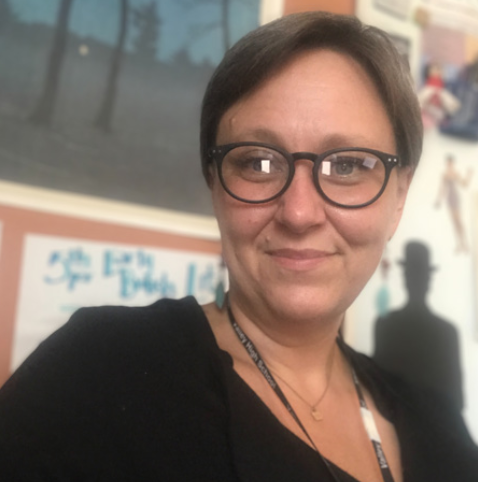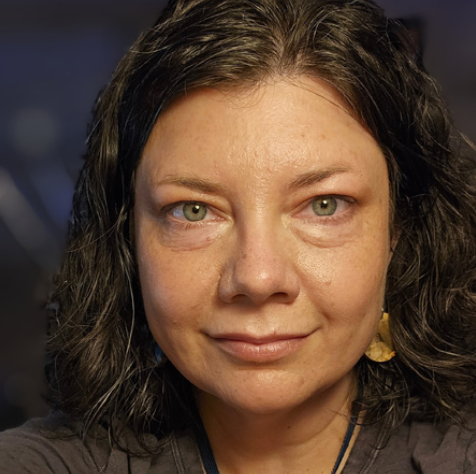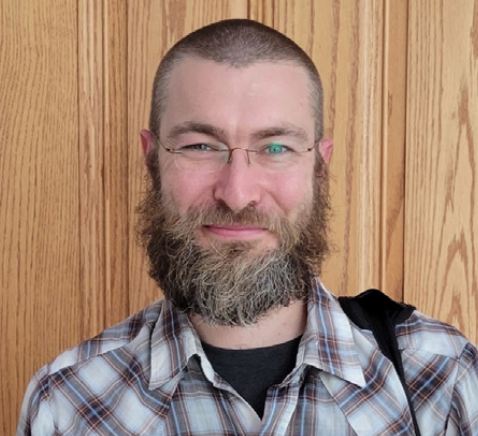Crawl Spaces to Productive Ruptures: A Reflection on Speculative Futures
by Petra J. Lange, Erin Perry, and greg wickenkamp
Perhaps the greatest purpose of artistic expression is trying to make sense of the human experience. Art and storytelling construct and transform our realities. Taking the noise of seemingly endless stimuli in our physical existence, stories and images illuminate patterns and reveal meaning. In so doing, they wield incredible power. This is the reason censorship is such a useful tool to the status quo. The state of Iowa put this tool to use in 2021 with the passage of House File 802, the law restricting so-called “divisive concepts” (Iowa Legislative Services Agency, 2021). Examples of “divisive concepts” barred from mandatory trainings or coursework include the existence of systemic racism or sexism in the United States and that meritocracy could be interpreted as sexist or racist. Curbing the ability to explore systemic oppression in schools restricts learning, impedes critical thinking, and disproportionately censors LGBTQ+ and BIPOC authors. With scant support or direction from educational authorities and little hope of legal repeal, the three educator authors have attempted to navigate the hostile environment of questionably banned books, inhumane treatment of students, and severely diminished curricula.
Erin, Petra, and greg, the authors of this paper, all taught in Iowan secondary schools in the 2021-22 school year after HF 802 became law. The public districts they served in had distinct differences and telling similarities. Erin and Petra’s suburban 10th through 12th grade high school had twice as many students enrolled in their building as greg had students in his entire rural district. The suburban school had greater racial diversity; the rural school higher numbers in the free and reduced lunch program. More multilingual learners were enrolled in the suburban district, and more learners with Individual Education Plans (IEPs) were enrolled in the rural district. Even with these differences, we all felt deeply the sacrifices that restrictive policies ask educators, students, and communities to make.
In the spring semester of 2022, Erin and Petra created a semester-long inquiry project for their high school students. At the start of 2024, reflecting on what they learned from students, Erin and Petra started a reflective project together.
 Petra J. Lange serves as an assistant professor of education at Grinnell College and loves learning from student-led, anti-racist collectives; culturally and historically responsive scholars; and educators whose praxis resists dehumanization for themselves and their students. Teaching for 20 years in Central Iowa has provided countless opportunities to be amazed and humbled by the resiliency and brilliance of students and their educators.
Petra J. Lange serves as an assistant professor of education at Grinnell College and loves learning from student-led, anti-racist collectives; culturally and historically responsive scholars; and educators whose praxis resists dehumanization for themselves and their students. Teaching for 20 years in Central Iowa has provided countless opportunities to be amazed and humbled by the resiliency and brilliance of students and their educators.
 Erin Perry has been teaching English Language Arts for more than 20 years. Erin was previously a high school teacher in Iowa, but anti-trans legislation drove her out of Iowa to Massachusetts, where she now learns far too much about Gen Z and Alpha memes as a 7th grade teacher.
Erin Perry has been teaching English Language Arts for more than 20 years. Erin was previously a high school teacher in Iowa, but anti-trans legislation drove her out of Iowa to Massachusetts, where she now learns far too much about Gen Z and Alpha memes as a 7th grade teacher.
 A life-long Iowan, greg wickenkamp has served as a classroom teacher, wilderness guide, non-profit worker, and university lecturer. His experiences in teaching have been covered in the Washington Post, Slate, and CNN. Curious about how education might be liberatory, greg earned a Master of Arts in the Social Foundations of Education, graduate certificates in educating for social justice and African American studies, and is currently pursuing a PhD in history at the University of Iowa. He is a proud member of UE local 896.
A life-long Iowan, greg wickenkamp has served as a classroom teacher, wilderness guide, non-profit worker, and university lecturer. His experiences in teaching have been covered in the Washington Post, Slate, and CNN. Curious about how education might be liberatory, greg earned a Master of Arts in the Social Foundations of Education, graduate certificates in educating for social justice and African American studies, and is currently pursuing a PhD in history at the University of Iowa. He is a proud member of UE local 896.